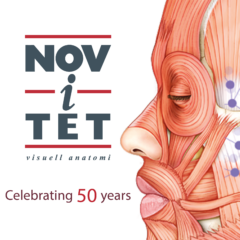UCB och Biogen rapporterar positiva fas 3-resultat för lupusbehandling – ny studie startar 2024
UCB och Biogen har fått positiva resultat från en fas 3-studie av läkemedlet Dapirolizumab Pegol, som behandlar systemisk lupus erythematosus (SLE), och planerar att starta en ny fas 3-studie under 2024.
UCB and Biogen Announce Positive Topline Results From Phase 3 Study of Dapirolizumab Pegol in Systemic Lupus Erythematosus and are Initiating Second Phase 3 Study in 2024
- Phase 3 PHOENYCS GO study met the primary endpoint demonstrating clinical improvement in moderate-to-severe systemic lupus erythematosus; Clinical improvements were observed among key secondary endpoints measuring disease activity and flares.
- UCB and Biogen are advancing dapirolizumab pegol with the objective to address the unmet medical need for people living with SLE, where there are limited treatment options. SLE is a chronic, debilitating autoimmune disease that affects multiple organ systems and disproportionately affects women.
UCB and Biogen Inc. today announced positive topline results from the Phase 3 PHOENYCS GO study evaluating dapirolizumab pegol, a novel Fc-free anti-CD40L drug candidate, in people living with moderate-to-severe systemic lupus erythematosus (SLE). Dapirolizumab pegol, in addition to standard-of-care (SOC) treatment, met the primary endpoint to demonstrate greater improvement of moderate-to-severe disease activity as assessed by achievement of British Isles Lupus Assessment Group (BILAG)-based Composite Lupus Assessment (BICLA) after 48 weeks versus placebo in addition to SOC. Clinical improvements were observed among key secondary endpoints measuring disease activity and flares.
The safety profile of dapirolizumab pegol was generally consistent with previous studies and with that expected in study participants with systemic lupus erythematosus receiving an immunomodulator.
Based on the outcome of the PHOENYCS GO study, UCB and Biogen are initiating a second Phase 3 trial of dapirolizumab pegol in 2024, PHOENYCS FLY. Participants from the PHOENYCS GO study will continue to be followed in a long-term open-label study.
PHOENYCS GO (n= 321) is a multicenter, randomized, double-blind, placebo-controlled, parallel-group study of dapirolizumab pegol as an add on therapy to standard of care compared to placebo with standard of care. The primary outcome measure was improvement of moderate-to-severe disease activity at Week 48 using BICLA, an established, composite primary efficacy endpoint for measurement of clinical disease activity based on patient medical history, clinical examination and laboratory tests.
About Systemic Lupus Erythematosus (SLE)
SLE, the systemic form of lupus, is a chronic, multifactorial autoimmune disease that can affect multiple organ systems with periods of illness or flares alternating with periods of inactivity.1SLE can present itself in several ways including rash, arthritis, anemia, thrombocytopenia, serositis, nephritis, seizures or psychosis.2 SLE is associated with a greater risk of death from causes such as infection and cardiovascular disease.
An estimated 90 percent of people living with lupus are women; most begin to see symptoms between the ages of 15-55.3,4,5 Individuals from populations of African, Hispanic, Asian and Native American descent are at a greater risk of earlier onset and more aggressive disease.6,7 Pregnancy in women with SLE is high risk, with higher maternal and fetal mortality and morbidity than the general population.8,9
About Dapirolizumab Pegol
Dapirolizumab pegol is a novel investigational humanized Fc-free polyethylene glycol (PEG)-conjugated antigen-binding (Fab’) fragment. Dapirolizumab pegol inhibits CD40L signaling which has been shown to reduce B cell activation and autoantibody production, mitigate type 1 interferon (IFN) secretion, and attenuate T cell and antigen-presenting cell (APC) activation.10Dapirolizumab pegol is presently in Phase 3 clinical development for the treatment of systemic lupus erythematosus (SLE) under a collaboration between UCB and Biogen.11





